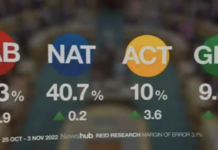Rt Hon Jacinda Ardern
Prime Minister
Hon Carmel Sepuloni
Minister for Social Development and Employment
- 54 per cent of all New Zealand families with children will now be eligible for subsidised childcare assistance.
- Over 10,000 additional children eligible for support.
- Nearly every sole parent in New Zealand will be eligible for childcare assistance
- Increasing the income thresholds increases both the number of families eligible and increases the amount for many already getting it.
- Policy reverses freeze on income thresholds for childcare eligibility National put in place in 2010
- From April 2023, the Family Tax Credit will also increase by $9 a week for the eldest child to $136 a week, and by $7 a week for subsequent children to $111 a week. Best Start too will lift by $4 a week to $69 a week.
The Government is easing cost of living pressures for the majority of New Zealand families by improving access to and the value of childcare assistance Prime Minister Jacinda Ardern announced today.
The Prime Minister also announced increases to the Working for Families Tax Credits that almost 60 percent of New Zealand families receive.
The latest policy in the Government’s package of cost of living measures reverses a freeze on the income threshold for childcare eligibility that National put in place in 2010. By playing catch-up and indexing the income threshold to wage growth over 10,000 additional children are estimated to receive support.
“We’re targeting one of the most significant costs for working families by making childcare and before and after school care more affordable to a greater number of low and middle-income families,” Jacinda Ardern said.
“At a time when families are feeling the cost-of-living spike, we’re investing in what matters most by making sure childcare is within reach for parents and they have more support to cover other costs.
“The policy means a family with two parents both working 40 hours per week on $26 per hour with two children under five who will not have been eligible for childcare assistance, now will be eligible for $252 per week from 1 April 2023.
“Research shows nearly 23 per cent of mothers report difficulties getting childcare while working or wanting to work. This policy helps remove that barrier and enables parents to enter the workforce to help fill labour shortages, so it’s a win-win for families and the economy.
“It’s also about restoring opportunities for children to get the best start in life. Evidence shows that participation in high quality childcare can reduce the impact of socio-economic disadvantage.
“The inflation adjustment of the Family Tax Credit will also provide a little extra relief for the majority of working families. Along with previous increases to the Family Tax Credit, a family with two children on a median family income for Working for Families recipients are now receiving over $1300 more a year since we took office. That climbs to over $3600 for families receiving the Best Start payment.
“Supporting New Zealand families with the cost of living is the top priority for the Government. This kind of targeted support not only reaches those who need it most but it won’t have a significant impact on inflation and make the problem worse” Jacinda Ardern said.
“Making childcare more affordable will help to remove financial barriers to work, particularly for sole parents and those on low- to middle-incomes,” Minister for Social Development and Employment Carmel Sepuloni said.
“Childcare assistance has been underinvested in for more than a decade since income thresholds were frozen by National in 2010. In Budget 2021, we started to reverse that by indexing Childcare Assistance to average wage growth going forward, but today’s policy plays catch-up and reverses the freeze of the past 12 years.
“The policy will also help to address disparities in for Māori and Pacific mothers who are more likely to experience issues accessing childcare.
“For our tamariki, they’ll also get the best start in life by participating in high quality early childhood education. This will help set them up on pathways into further education and create positive opportunities for them to engage in their communities in the long-term.
“The Government has overseen record numbers of New Zealanders entering the workforce. This policy will assist more parents, especially women, to have the opportunity to take up work.
“We’re continuing to make significant progress on our welfare overhaul. This has included lifting core benefits to historic levels, reinstating the Training Incentive Allowance to support the likes of sole parents into work, allowing Child Support to be passed on to sole parents as well as investments made through the Families Package and our year-on-year increases to the minimum wage.
“There is still more work to do however, and that’s why we’ve prioritised our Working for Families Review with a focus on how our system of tax credits can better support families on the lowest incomes, particularly working families. Making childcare more affordable is only one step along the journey, with our Review of Childcare Assistance currently ongoing.
“We’re not shying away from putting families first and focusing on what matters most to New Zealanders, as we continue to deliver meaningful change in children’s and families lives especially during these challenging times,” Carmel Sepuloni said.





Well of course we pay people (the birthing person) to go to work and put their kids into care. After all being a trad married birthing person might be wrong think. Again, tinkering on the edges while refusing to do what must be done, regulate housing costs, food costs and energy costs.
So outsourcing child care too others so you can work is the dream for all parents . If parents want to both work that is their choice but why does the state need to help the situation. Surely if they cannot afford to survive without both working then perhaps they should not have children until they can or they get to a financial state of being able to afford child care without becoming a cost to the state. Far better that money went into education and health to make the children useful citizens.
Bit simplistic Trevor. Get the point about being responsible with what you can afford but we could be talking about people with one to two kids. Maybe they could afford things initially but then realised it was no longer sustainable given all that has happened. The broader family may not be able to help baby sit etc.